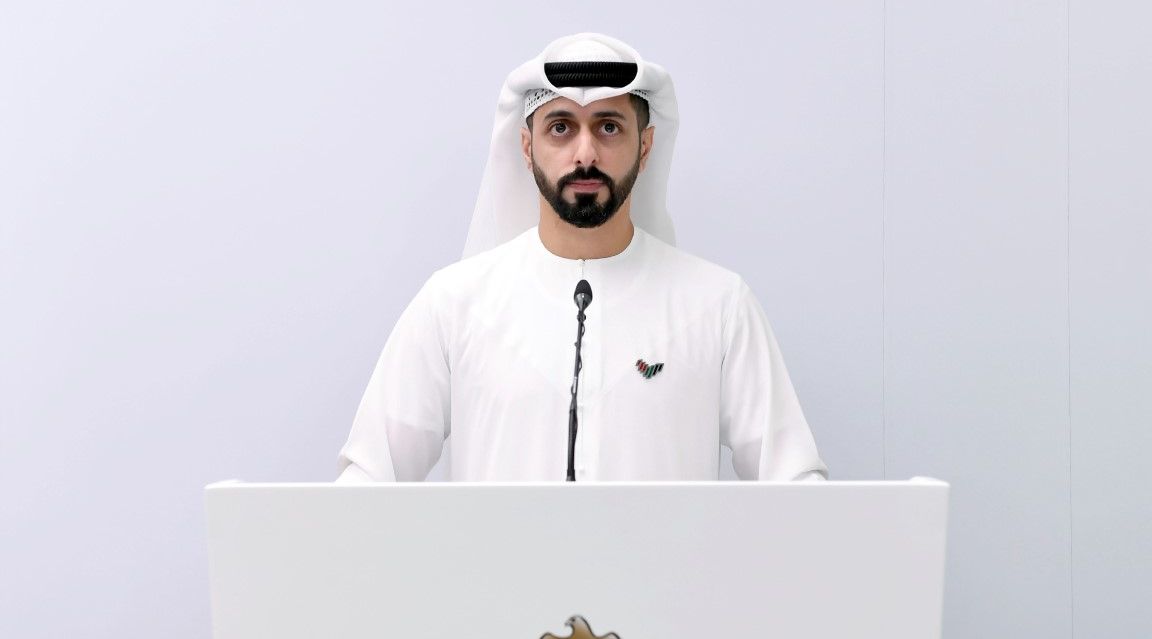Dr. Omar Abdulrahman Al Hammadi, the official Spokesman of the UAE Government, recently announced that the UAE has become the first country globally where the number of COVID-19 tests has exceeded its total population. Addressing a regular media briefing, Dr Al Hammadi announced that the total number of COVID-19 tests conducted by the country's health authorities has crossed more than 10 million as of now.
During the briefing, Dr Al Hammadi gave details about the latest developments in the fight against COVID-19 in the country and answered queries and inquiries related to the health concerns of the public. He also presented the statistics and figures related to COVID-19 cases and tests across the country as reviewed and monitored by authorities from the period between September 30 to October 6, 2020.
Al Hammadi stated that during this period, more than 720,000 tests were conducted across the country, which is a significant eight percent rise as compared to the previous week. The period also witnesses a 16 percent increase in the number of confirmed cases amounting to 7,704. Furthermore, there was a 23 percent increase in the overall recoveries during this period as compared to the previous week.
During the briefing, he emphasised on the keenness of the UAE leadership to continue its efforts to combat the spread of the COVID-19 pandemic and maintain its achievements across the key sectors. Noting the significance of the education for all students, the UAE authorities intensified their efforts to strengthen the sector to make it safer amid the pandemic. Al Hammadi added that the education sector was able to achieve record success in a short period of time with the help of the preparedness of educational infrastructure by national institutions and the adoption of latest technologies to ensure that the education process continues through the pandemic restrictions. At the same time, educational institutions ensured that precautionary measures are implemented with firmly to ensure the health and safety of the students, teaching staff and other employees of the establishments.
During the media briefing, Al Hammadi further revealed that 1,025 schools are carrying out their operations under the framework of a remote learning system in the ongoing academic year. This reflects that around 82.86 percent of the total number of schools across the UAE have continued their learning process through virtual mode. In addition, 212 schools have resumed their operations under the in-person learning system, representing 17.14 percent of the total Emirati schools.
He also explained that around 201,797 (17.28 percent of the UAE's total student population) students have opted for in-class learning system in the new academic year.
The UAE government spokesperson further called upon the volunteers participating in the COVID-19 vaccine trial to comply with all necessary precautionary and preventive measures including wearing face masks and maintaining physical distancing. He stressed that taking the vaccine does not mean that the person is safe from getting infected from the virus.
Explaining that the second dose of the vaccine will require at least four weeks to enhance the immunity of the volunteer, he asserted that even after this period, the vaccine will protect only their immunity system from the virus and not of other people around them including their families and colleagues. Therefore, he advised the volunteers and other members of the community to continue following the precautionary measures to ensure the health and safety of the public even as the threat of the pandemic prevails.
''Therefore, it is essential for them to continue adhering to the precautionary measures,'' he stressed.
Responding to a question on the need for taking the seasonal influenza vaccine and risks related to seasonal influenza amid COVID-19, Al Hammadi said that both seasonal influenza and COVID-19 pose risk for people, particularly, when it is difficult to differentiate between the two diseases.
He further urged people to cooperate with the efforts of the national health sector and take the influenza vaccine, available across all health centres in the country. Al Hammadi explained that while influenza may only cause mild symptoms among some categories of people, it can cause serious conditions among elderly people and people with chronic diseases. Al Hammadi went on to highlight that both influenza and Coronavirus are similar to each other, in terms of transmission, primarily through inhaling sneeze and cough droplets or by touching contaminated surfaces and then touching eyes, mouth or nose.
He further explained the similarities between precautions against Coronavirus and influenza, adding that there is a need to wear a face mask, follow physical distancing norms, sanitise hands and maintain safe distance from infected people in both the conditions. However, the prominent difference between the two diseases is the availability of a safe and approved vaccine.
Al Hammadi revealed that the influenza vaccine does not people the people from COVID-19. Explaining the significance of taking the influenza vaccine, he said that it is particularly essential for those individuals suffering from complications and those with a higher risk of transmitting the disease to others. They include healthcare sector staff members, children below the age of five, pregnant women, smokers, senior citizens above the age of 65 years. Furthermore, it is important for people suffering from diabetes, lung, liver, cardiac, or kidney diseases to take the influenza vaccine for their safety.
WAM
 AR
AR UR
UR
